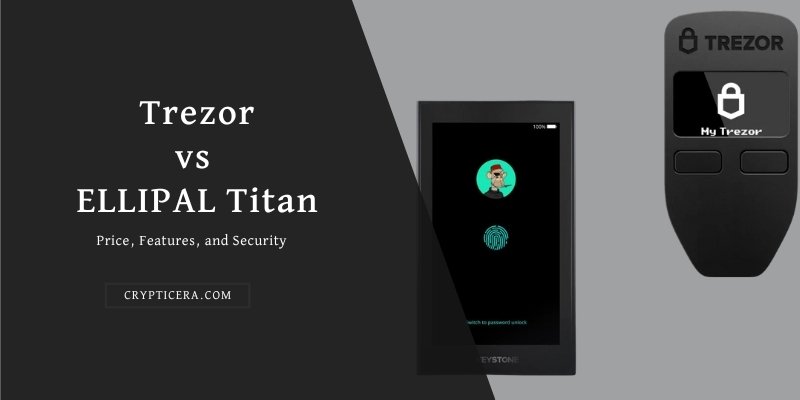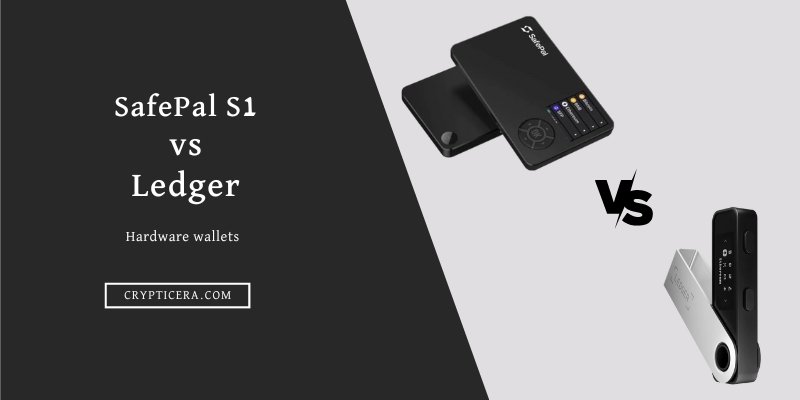If you’re interested in investing in cryptocurrencies, you’ll need a wallet to store your digital assets. There are many wallets to choose from, but two of the most popular are Trust Wallet and Coinbase Wallet.
Trust Wallet is a decentralized wallet acquired by Binance in 2018. It supports a wide range of cryptocurrencies and is designed to provide users with complete control over their funds. Coinbase Wallet, on the other hand, is a non-custodial wallet offered by Coinbase, one of the largest cryptocurrency exchanges in the world.
Both wallets have their pros and cons, and choosing the right one for you depends on your individual needs. Let’s Compare in terms of security, user experience, supported cryptocurrencies, and other important features to help you make an informed decision.
Key Takeaways:
- Trust Wallet offers decentralized storage with local private keys, while Coinbase Wallet provides non-custodial storage with a 12-word recovery phrase and insurance protection.
- Trust Wallet supports more cryptocurrencies, including tokens not available on major exchanges.
- Trust wallet offers low-fee swaps compare to coinbase.
Trust wallet vs Coinbase wallet: Key Differences
| Key Points | Trust Wallet | Coinbase Wallet |
|---|---|---|
| Launched date | 2017 | 2012 |
| Supported assets | 4.5M+ asset pairs | 10,000+ |
| Founders | Viktor Radchenko | Brian Armstrong, Fred Ehrsam |
| Blockchain supported | Binance smart chain, ERC-20 and 50+ | Every ERC-20 from Aave to ZRX |
| Security | High | High |
| NFT Storage | Yes | Yes |
| Transaction fees | low transaction fees | high ETH gas fees |
| DApp browser | Yes | Yes |
| Staking | Support 100+ digital assets | No |
Trust Wallet supports over 4.5 million asset pairs across Binance Smart Chain, ERC-20, and over 50 other blockchains. In contrast, Coinbase Wallet supports over 10,000 assets, specifically for ERC-20 tokens.
While Coinbase Wallet has a larger number of supported assets overall, Trust Wallet’s compatibility with a wider range of blockchains could provide more flexibility for users.
Trust Wallet supports staking for over 100 digital assets, whereas Coinbase Wallet does not currently support staking.
Trust Wallet Review

Trust Wallet is a mobile cryptocurrency wallet. It was acquired by Binance in 2018. Trust Wallet supports multiple cryptocurrencies and has industry-standard security measures.
The wallet has a user-friendly interface and features a built-in DApp browser. Trust Wallet supports staking for certain cryptocurrencies and allows adding and managing custom tokens. It is compatible with Android and iOS.
Pros and cons of Trust Wallet
| Pros | Cons |
|---|---|
| Supports a wide range of cryptocurrencies | No desktop version, only a mobile app |
| User-friendly interface and easy-to-use features | Limited customization options |
| Built-in DEX and staking capabilities | Limited customer support |
| Offers robust security measures such as biometric login and seed phrase backup | Limited fiat on-ramp options |
| Open-source and decentralized |
Read: Trust Wallet Review
Coinbase Wallet Review

Coinbase Wallet is a cryptocurrency wallet created by Coinbase. It lets users store, manage, and send cryptocurrencies. It supports Bitcoin, Ethereum, Litecoin, and more.
Coinbase Wallet gives users full control over their private keys, so they have complete ownership and control over their digital assets.
The wallet includes a built-in dApp browser, which makes it easy for users to access and interact with various decentralized applications on the Ethereum blockchain.
Coinbase Wallet also supports various blockchain networks, integrates with other wallets and exchanges, and more. It’s popular for its security and ease of use.
Pros and Cons of Coinbase wallet
| Pros | Cons |
|---|---|
| Convenient access to crypto | Limited coins supported |
| Easy-to-use interface | Not ideal for large transactions |
| High level of security | No desktop or web interface |
| Private key control | No customer support |
| Integration with Coinbase | Limited control of the transaction |
| Supports Ethereum and ERC-20s |
Trust Wallet vs Coinbase wallet: The Ultimate Comparison
Security
Trust Wallet implements multiple layers of security, including private key encryption, biometric authentication, and recovery phrase protection. It also supports hardware wallets like Ledger and Trezor to further enhance security. Trust Wallet also follows a non-custodial model, giving users complete control over their funds and private keys.
Coinbase boasts a strong track record of security, never experiencing a hack. It also employs multiple layers of security such as two-factor authentication, biometric authentication, and encrypted storage for private keys.
Ease of Use
Coinbase Wallet is generally known for its user-friendliness and ease of use, especially for beginners. Its interface is clean and intuitive and it offers a wide range of features and options for managing and buying cryptocurrency.
It has a large user base and extensive documentation and support resources available.
Trust wallet is a mobile wallet designed for storing and managing multiple cryptocurrencies. It is generally considered easy to use, with a simple and straightforward interface.
However, it may have a steeper learning curve for users unfamiliar with cryptocurrency or mobile wallets.
No. of Cryptocurrencies Supported
Trust wallet app supports 65 blockchains and 4.5M+ assets. Trust wallet app supports the main blockchains within the Ethereum ecosystem, and works with any ERC20, BEP2, BEP20, and ERC721 tokens whilst also providing coverage as a bitcoin wallet.
Coinbase Wallet supports hundreds of thousands of coins and a whole world of decentralized apps.
Transaction fees
Trust Wallet is a free-to-use cryptocurrency wallet that does not charge any fees for using the in-app DEX or the Dapp browser. However, it should be noted that Trust Wallet may charge a fee for transaction processing, which is required by miners and proof-of-stake chains.
Additionally, high usage of the Bitcoin blockchain may result in a fee of between $5 and $10 per transaction.
The Coinbase wallet has a more complex fee structure, with transaction fees applied to both the wallet and exchange. However, there are no fees for transactions between Coinbase wallets.
Network fees may apply when transactions involve other wallets, and trading on the platform may incur a fiat or variable fee. It depends on the payment method, location, and other factors. This fee can range from 1.49% to 3.99%.
Related:
- Trust Wallet Vs Exodus
- Metamask Vs Trust Wallet
- How To Make Money With Trust Wallet
- Best Multisig Crypto Wallets For 2023
- Best Custodial Crypto Wallets
NFT Storage

Trust Wallet and Coinbase Wallet are both cryptocurrency wallets that allow you to store, manage, and trade various cryptocurrencies, including non-fungible tokens (NFTs). However, there are some key differences between the two wallets when it comes to NFT storage.
Here are a few points to consider when comparing Trust Wallet and Coinbase Wallet for NFT storage:
- Supported cryptocurrencies: Both Trust Wallet and Coinbase Wallet support a wide range of cryptocurrencies, including NFTs. However, Coinbase Wallet only supports a limited number of NFT projects, while Trust Wallet supports a wider range of NFT projects and protocols.
- NFT management: Trust Wallet offers a dedicated NFT wallet that allows you to easily manage and organize your NFT collection. Coinbase Wallet, on the other hand, does not currently offer a dedicated NFT wallet and instead handles NFTs as part of its overall cryptocurrency wallet.
- Interface: Trust Wallet is known for its user-friendly interface, which makes it easy for users to manage and trade their NFTs. Coinbase Wallet is also easy to use, but it may not be as intuitive for users who are new to NFTs.
- Security: Both Trust Wallet and Coinbase Wallet prioritize security and offer multiple layers of protection to keep your NFTs safe. Trust Wallet is an open-source wallet that is audited by third-party security firms, while Coinbase Wallet is a closed-source wallet that has a strong track record of security.
Staking Rewards
Trust Wallet:
- Trust Wallet offers Staking rewards for certain cryptocurrency assets, such as Tezos and Cosmos.
- Users can earn staking rewards by holding the supported assets in their Trust Wallet and participating in the staking process.
- The staking rewards earned in Trust Wallet are paid out in the same cryptocurrency asset.
- Trust Wallet also offers a “Staking Rewards Calculator” to help users estimate their potential staking rewards.
coinbase wallet does not support Staking.
How to use Coinbase or Trust wallet
- Download the Coinbase Wallet or Trust wallet app from the App Store or Google Play Store, and create an account if you haven’t already.
- Once you’re logged in, tap the “Receive” button to get your wallet address.
- You can now send cryptocurrency to your Coinbase Wallet address. To do this, tap the “Send” button, enter the recipient’s wallet address and the amount you want to send, and confirm the transaction.
- If you want to buy cryptocurrency, you can do so directly from within the Coinbase Wallet app by tapping the “Buy” button and following the instructions.
Conclusion
Both Trust Wallet and Coinbase Wallet offer secure and user-friendly options for managing cryptocurrencies.
Trust Wallet offers a wider range of supported cryptocurrencies and more robust security features, while Coinbase Wallet offers a simpler and cleaner user interface and integrates with the Coinbase Exchange for seamless trading.
Ultimately, the choice between the two wallets depends on the user’s specific needs and preferences.
FAQs
Is Coinbase Wallet Safe?
Yes, Coinbase Wallet is generally considered safe as it offers advanced security features such as two-factor authentication, biometric authentication, and secure enclave technology. Additionally, users have full control over their private keys and funds.
Which is better, Coinbase Wallet, or Trust Wallet?
Coinbase Wallet is better suited for users who want to interact with the Coinbase ecosystem, while Trust Wallet is better suited for those who want a standalone wallet with support for a wider range of cryptocurrencies.
Is Coinbase Wallet or Trust Wallet available in the USA?
Yes, both Coinbase Wallet and Trust Wallet are available in the USA. Coinbase Wallet is owned by Coinbase, which is a US-based company, and Trust Wallet is owned by Binance, which has a presence in the USA.
Is Trust Wallet Safe?
Yes, Trust Wallet is generally considered safe as it offers features such as biometric authentication, encryption, and recovery phrases to secure users’ private keys and funds. It is also audited by leading security firms to ensure the highest standards of security.



